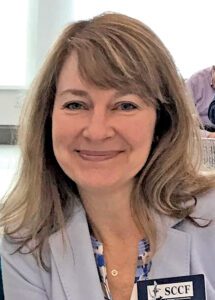Guest Commentary | SCCF provides 2025 legislative summary

On June 30, with one day to spare before the beginning of the July 1 fiscal year, Gov. Ron DeSantis signed the $117.4 billion state budget for 2025-26. This budget was the result of an unusually long 105-day state legislative session. In Florida, the legislative session is statutorily scheduled for 60 consecutive days, or until a budget agreement is reached (as was the reason for the extension this year).
The governor vetoed $567 million out of nearly $2 billion in local member projects. Florida’s environment received some support this year, as Everglades restoration funding fared well. However other aspects, such as funding for the Florida Forever Land Acquisition program, ended up disappointingly low, though previously approved Florida Forever funds were saved from being repurposed for general government spending.
The Legislature voted to “claw-back” $200 million of previously approved Florida Forever funding and put it into the general fund, but DeSantis vetoed that move to preserve the funds for the originally intended acquisition of key links in the Florida Wildlife Corridor in the northern Everglades and near federal forests in north Florida.
Other approved environmental resource funding included:
• $742,028,059 for Everglades restoration
• $18 million for Florida Forever (with $200 million restored by the veto process)
• $5 million for harmful algal bloom management
• $8 million for Florida Gulf Coast University’s Water School for water quality research ($25 million was allocated for this purpose last year)
SCCF legislative priorities and how they fared
Ecosystem impacts and water quality
• Signed into law: SB 492 — Mitigation Banks. The bill allows for the sale of credits before a mitigation bank has proven functionality, and allows for credits to be bought and sold far outside the watersheds that are being impacted. This new process upends the current process that is supposed to provide flood protection, water retention, and filtration and habitat benefits to the area losing the wetlands to development. This new law will leave certain areas overdeveloped without the protections provided by wetlands.
• Signed into law: HB 209 — Parks Protection Bill. The bill is a result of the ill-conceived 2024 state administration plan to add golf courses and 350-room lodges to nine of Florida’s most environmentally sensitive state parks. The Legislature unanimously approved the bill that will prohibit destructive development in our state parks and close any loopholes in the effort to protect the natural jewels of our state.
• Signed into law: SB 1388 — Vessels. This governor’s priority is being referred to as the “Boater’s Freedom Act,” but in practice, it will free bad actors to flout important environmental protections. The bill will raise the standard law enforcement needs to meet before they are able to interact with boaters by requiring “probable cause” to make safety checks and ensure that people aren’t poaching in Florida waters.
Local government preemption
• Signed into law: SB 180 — Emergencies. While the bill contains storm recovery benefits, it also contains some very damaging preemption policies, including prohibiting local governments from adopting new plans or codes for three years after a hurricane that could be considered “more restrictive or burdensome” unless developers agree to the change. The bill essentially prohibits local elected officials from enacting sustainable growth policies that would protect their communities from future storms.
• Failed: SB 1822 — Regulation of Auxiliary Containers (later named Waste Management). This perennially bad legislation that seeks to preempt local governments from regulating “auxiliary containers'” (commonly single-use plastic food containers) failed again this year, but was very close to passing after it was added onto another bill. Ultimately, the bill sponsor of the legislation it was added to did not support the auxiliary container language, and the bill failed as it was being debated during the very last hours of session. The Sanibel-Captiva Conservation Foundation will be working with legislators and advocates prior to the next session on future legislation that offers statewide solutions to our increasing plastic pollution problem.
• Failed: SB 1118 — Land Use and Development Regulations. The bill began as one of the worst bills of the session, but ended as an example of what engaged advocates can do to stop harmful legislation. The bill would have preempted infill policies and zoning and development regulations, eliminated rural development boundaries, negated local referendum votes, and allowed administrative approval of developments in rural areas. In spite of public opposition to SB 1118, sections of the bill were quietly added to other bills, but ultimately those bills were also watered-down to eliminate the worst elements of the original bill.
Energy and sustainability
• Failed: HB 1063 — Carbon Sequestration. The bipartisan bill aimed to create a statewide study and develop a two-year task force to evaluate the role of natural and agricultural lands, as well as our waters, in storing carbon. It would have examined the benefits of ecosystem services provided by lands serving as flood mitigation and water storage and filtration. Unfortunately, the bill was not supported by DeSantis, and it failed to advance in committee
• Failed: SB 50 — Nature Based Methods for Improving Coastal Resilience. The bill made a strong showing and was poised for passage but died in the last week of session as legislators made last minute changes to the bill. The bill was designed to provide more guidelines and standards for optimal combinations of green and gray infrastructure to address sea level rise and the impact of storm surges.
Thank you for your action and feedback during this legislative session.
A complete list of the bills that the SCCF was tracking and their outcomes can be found on our Legislative Tracker.
Holly Schwartz is policy associate for the Sanibel-Captiva Conservation Foundation (SCCF). Founded in 1967, the SCCF’s mission is to protect and care for Southwest Florida’s coastal ecosystems. For more information, visit sccf.org.
To reach HOLLY SCHWARTZ, please email news@breezenewspapers.com

